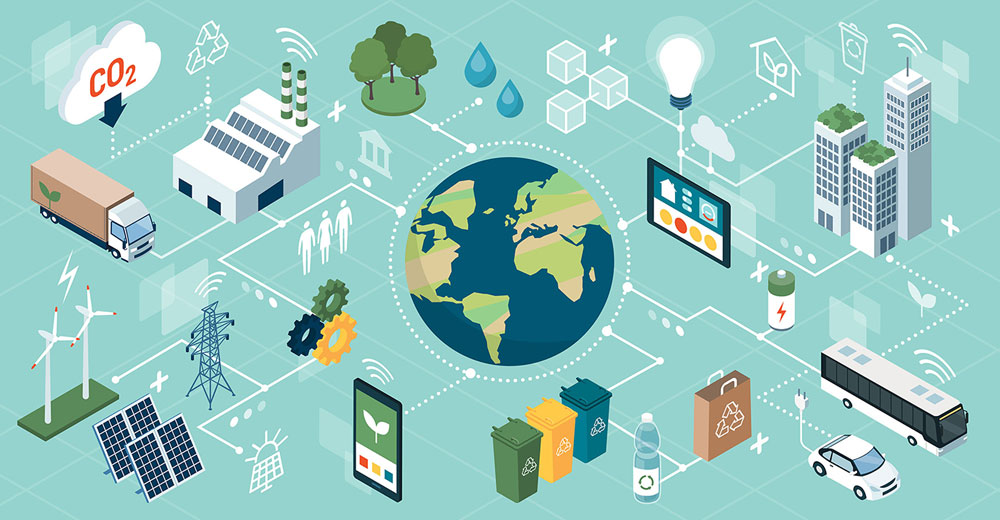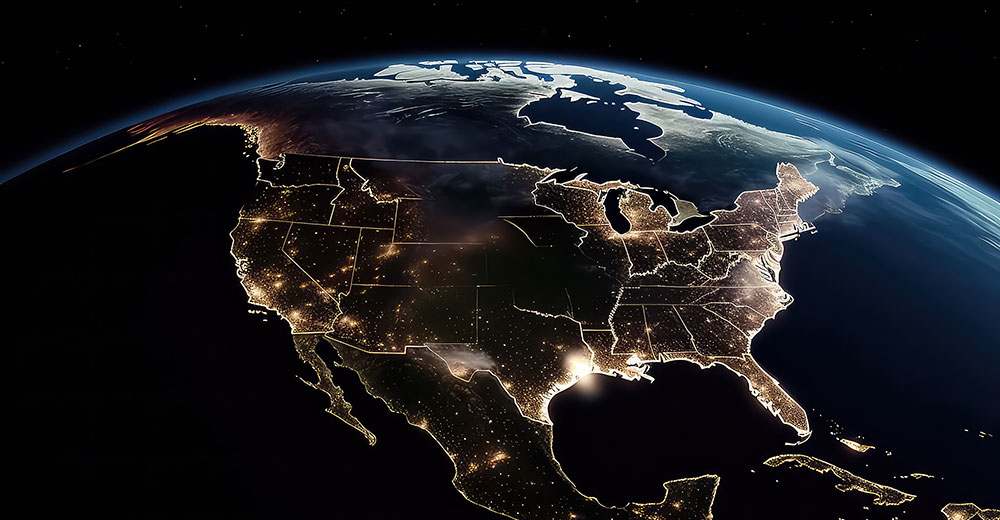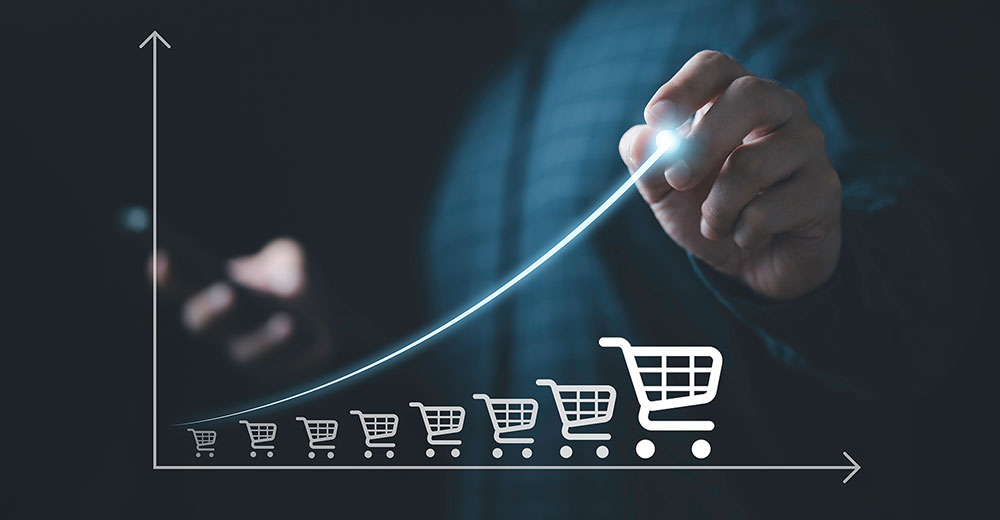In an era in which consumers are demanding that goods be delivered ever more quickly, the logistics of getting merchandise into customers’ hands are becoming increasingly complicated.
Add to that the need to focus on sustainable, environmentally-friendly practices, and it’s clear there are unique and unprecedented challenges facing the logistics industry.
The E-Commerce Times spoke with a variety of experts in the field to get their take on what’s happening to make logistics more sustainable and how this sustainability can be good not just for the planet but for business.
“At its most fundamental level, sustainable logistics is about building supply chains that generate long-term value not just for companies’ core stakeholders, such as customers and investors, but for society at large,” Mike Parra, CEO at DHL Express Americas, told the E-Commerce Times.
“It is about enabling growth and trade while also protecting the environment, creating fair and inclusive working conditions, and respecting human rights. It encompasses many areas, but in this case, we would like to highlight environmental sustainability, which is primarily focused on eliminating the emissions that can be generated across all areas of transport and logistics operations,” Parra explained.
Ultimately, sustainable logistics makes sense for the planet, consumers, and for businesses themselves.
“Sustainable logistics is about having an approach that leads to positive economic, environmental, and social outcomes for our business, our customers, and the world more broadly,” Lang Cottrell, southwest regional director of Goodman Group US, told the E-Commerce Times. “Making a positive contribution towards a more sustainable world has never been more important.”
Environmental Expectations
One of the strains on the logistics industry is increased consumer demand for fast delivery — and this requirement is making it even more important to consider the environmental impacts of heightened speed.
“With consumers’ delivery expectations shifting to one-day or same-day delivery, supply chains will only demand more use of ocean vessels, railcars, trucks, and airplanes to move more goods at an increasingly faster rate,” Mitchell Bailey, COO at Kaspien, explained to the E-Commerce Times.
“With these delivery expectations compressed, we need to ensure that the logistics strategies we utilize to meet these delivery demands are scalable, with minimal impact to our natural resources and the environment. Responsible delivery logistics is essential to ensure the future of our industry and the well-being of the planet,” he added.
Quick delivery also means focusing on making the last mile as Earth-friendly as possible.
“Sustainable logistics is simple: get the package from its origin to its destination without having a negative impact on the environment or the communities we serve,” Ian Gardner, CEO of GoFor, told the E-Commerce Times.
“This means approaching the last-mile delivery and fulfillment process from a sustainable perspective on all fronts — converting the entire fleet to electric vehicles, making those vehicles and drivers more efficient, and introducing packaging and materials that produce less waste and can be reused or recycled,” he stated.
Shoppers, while wanting goods delivered quickly, have also become conscious of the need to make those deliveries more sustainable, and that consumer consciousness is shaping how the logistics industry operates.
“An increase in online sales coupled with a fervent consumer desire to receive goods as quickly as possible is currently juxtaposed against a logistics industry facing real and substantial challenges tied to the cost and capacity of getting those goods in hands,” Megan Stillerman, vice president of professional service and customer success at Miva, explained to the E-Commerce Times.
“Logistics and retail companies have an opportunity to partner together,” she continued.
“By tapping into the mindset of conscious shoppers and asking them to spend with sustainability in mind, accept tradeoffs on delivery times and package consolidation, and really think about where and how their goods are getting to them, the industry overall can make room for changes that will not only allow for a lighter tread on the Earth but also for survival and growth of the industry itself.”
Sustainability for Profitability
The logistics industry is made up not just of trucks and planes but of the data centers and information infrastructure behind it all. These, too, need to evolve to become more sustainable.
“Sustainable infrastructure is crucial to building green economic growth within the data center and fiber networks industry,” Merete Caubet, vice president of Fiber Networks at Bulk Infrastructure, told to the E-Commerce Times.
“We are a leader in sustainable infrastructure by utilizing renewable energy, hydropower, water recycling, and district heating,” Caubet asserted. “By developing pure infrastructure, state-of-the-art fiber routes, and connectivity solutions that enable the sustainable technology solutions, Bulk can drive sustainable logistics forward.”
As their commitment to sustainability heightens, brands will be increasingly highlighting this commitment as part of their marketing strategy.
“Due to the fact that shoppers are getting progressively choosier with the products they purchase, they’re becoming conscious about where the item is sourced from,” Randy Mercer, vice president of global product management at 1WorldSync, told the E-Commerce Times.
“One way companies within the logistics industry can leverage this transparency is through updated product content from brands, which encapsulates product descriptions, details, and images.
“E-commerce navigation is a top priority with fewer in-store shoppers recently. Big-name brands such as Walmart and Target are up against Amazon to improve product content, so customers know upfront if a product meets their sustainability needs,” he observed.
As alternative fuels become more common and cost-effective, they’ll bring sustainable logistics progressively into the reach of businesses all along the supply chain — and contribute to profitability.
“In addition to benefiting the ecosystem, sustainability drives profitability and minimizes economic variation in underlying costs, such as fuel costs,” Dan Neiweem, co-founder and principal of Avionos, told the E-Commerce Times. “More efficient and alternative fuel sources or electric vehicles are a major focus for the logistics industry as they strive to be more sustainable.
“Software can also optimize routes and identify potential customers along existing routes, while short routes also minimize the impact on the ecosystem.”
“As renewable energy becomes more efficient,” he continued, “warehouses will be fully powered by solar and wind, and vehicles will be powered by electricity. Greater controls will be put on driving speeds and braking, either through monitoring or autonomous vehicles. As routes become shorter, deliveries between warehouses will focus on more sustainability.”
Essential to Partnerships
Trends toward sustainability within the logistics industry will become increasingly central to what it means to get goods from one point to another — and ultimately what it means both to run a business and to buy products in the twenty-first century.
“In the next five years, sustainability will become an even higher priority for supply chain companies as brands will increasingly require their partners to reduce their carbon footprints,” Pete Zimmerman, North American software sales manager at VAI, explained to the E-Commerce Times.
“To be more sustainable in the future and to help meet these green initiatives, the logistics industry should continue to implement technology to gain actionable insights into sustainability goals and move toward a greener supply chain,” he advised.

























































Social Media
See all Social Media